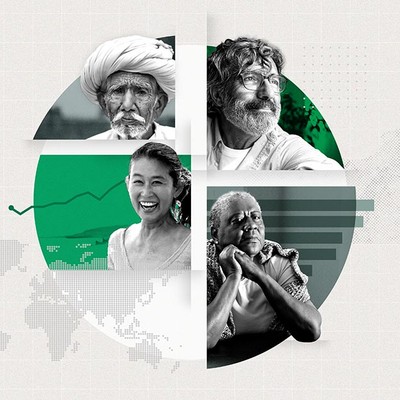This is the first of two articles from Gallup’s latest global research on how the world is feeling.
WASHINGTON, D.C. -- The world’s overall emotional health was in a better state last year, according to Gallup’s latest annual update on the negative and positive experiences that people have daily.
Negative emotions fell for the first time since 2014, with experiences of stress, sadness, anger, worry and physical pain each taking a downturn. As a result, Gallup’s Negative Experience Index fell two points from the previous year to 31, the level it was at in 2019 before the pandemic.
As it does every year, Gallup asked adults in 142 countries and areas in 2023 if they had five different negative experiences on the day before the survey -- and then compiled the results into an index. Higher scores on the Negative Experience Index indicate that more of the population is experiencing these negative emotions, and lower scores show the opposite.
While this drop is a positive sign for policymakers on the heels of the well-documented rise in global unhappiness, the good news comes with a caveat: The index and each of its components remain higher than they were a decade ago.
Further, not all countries -- particularly those at war, such as Israel -- enjoyed these improvements. With a score of 47 on the Negative Experience Index, Israel, surveyed two weeks after the Hamas attacks, vaulted onto the list of countries with the highest scores in the world on this index.
Stress Levels Ease Globally
Stress declined the most among the five negative emotions, falling three percentage points in 2023 to 37%. Stress was down from levels seen during the pandemic but well above where it was a decade ago (33%) and the years before that.
Worldwide, stress was still present everywhere, although to varying degrees. Reported stress was above 60% in Northern Cyprus (65%) and Israel (62%) and lower than 10% in Kyrgyzstan (8%).
After the signing of the Nagorno-Karabakh ceasefire agreement, Azerbaijan led the world in declining stress levels -- dropping from 40% to 14% in the span of a year. Other countries saw double-digit declines, including Afghanistan and Gambia (each down 15 points), China (12 points and accounting for much of the global decline) and Eswatini (11 points).
Israel led the world in increased stress, with levels soaring 38 points to a new record high for the country. Other countries also saw double-digit increases, including Latvia (17 points), Kuwait (14 points) and Egypt (13 points).
Positive Emotions Complete Their Rebound
Globally, positive emotions also returned to their pre-pandemic levels in 2023, completing the rebound that started in 2022. The global Positive Experience Index score in 2023 -- 71 -- matches the previous high in the years leading up to the pandemic and even in its first year.
The index is based on people's responses to five questions about positive experiences they had the day before the survey. Higher scores indicate that more of the population reported experiencing these emotions, and lower scores indicate the opposite.
Last year, three of the five emotions were stable compared with the previous year. Over seven in 10 people worldwide said they felt well-rested (71%), experienced a lot of enjoyment (73%), or smiled or laughed a lot (73%).
Two emotions changed direction. Just shy of nine in 10 felt treated with respect (85%), down two percentage points from the previous year. The percentage who learned or did something interesting the previous day increased to a record-high 54%, up four points from the year before.
More of the World Learned Something in 2023
For almost two decades, the percentage of people worldwide who said they learned or did something interesting the previous day has seldom topped 50%. That changed in 2023.
A host of countries saw double-digit increases on this measure in 2023, including India (12 points), Iceland (11 points), and Greece and China (10-point increases).
India’s and China’s increases account for much of the change at the global level because of their large population sizes. The 59% of Chinese adults and 52% of Indian adults who said in 2023 that they learned or did something interesting are among the highest levels in Gallup’s trends for these two countries.
Still, residents in China and India were not the most likely worldwide to say they had these experiences. Senegalese ranked No. 1 on this measure, with 79% in 2023 saying they learned or did something interesting, similar to the 77% who said so in 2022.
Not all people were as lucky. Afghans and Bangladeshis were among the least likely in the world to say they learned or did something interesting, with 17% in each country saying they felt this way the previous day -- statistically unchanged from the 15% who said so in each country the previous year.
Implications
While the world’s emotional health improved in 2023, it’s still too soon for policymakers to relax. Although positive emotions are up and negative emotions are down, the world continues to have a wellbeing problem. Negative emotions remain higher than they were a decade ago.
To stay up to date with the latest Gallup News insights and updates, follow us on X @Gallup.
For complete methodology and specific survey dates, please review Gallup's Country Data Set details.
Learn more about how the Gallup World Poll works.





